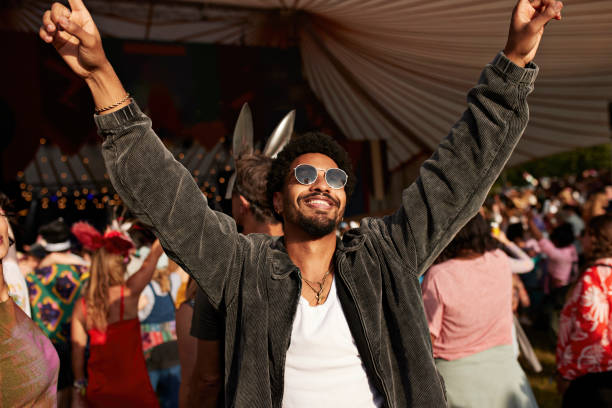Performing at a music festival can be a major milestone for any artist. It’s not only a great way to gain exposure, but also to connect with new fans, network with industry professionals, and build your reputation as a live performer.

But how do you actually get booked for music festivals—especially as an independent or emerging artist? Here’s a step-by-step guide to help you stand out and land the slots you’re aiming for.
1. Build your live performance experience
Festival organisers want acts that can hold a crowd and deliver a great show. Before applying, make sure you’ve built up some live experience by:
- Playing at local venues, open mics or support slots
- Creating a live performance highlight reel
- Getting testimonials or quotes from previous gigs
- Learning how to work a stage and engage a crowd
The more you can show that you’re reliable and entertaining live, the better your chances of being taken seriously.
2. Research the right festivals for your style
Not every festival will be the right fit. Look for events that match your genre, audience and current level. You can start by searching:
- Independent music festivals in your region
- Genre-specific festivals (e.g. folk, electronic, R&B)
- Emerging artist showcases or new talent stages
- University or community-run festivals
Make a list of festivals with open submissions or contact details for their booking teams.
3. Prepare your EPK (electronic press kit)
Your EPK is your digital CV as a musician. It should be professional, clear, and easy to access—often as a private webpage or a downloadable PDF. Include:
- A short, engaging bio
- Press-quality photos
- Live performance videos
- Links to your best tracks
- Previous gig highlights or festival appearances
- Social media and streaming stats (if relevant)
- Contact details or management info
This makes it easier for bookers to understand who you are and what you can bring to the line-up.
4. Apply professionally
If the festival has an official application process, follow it exactly—pay attention to deadlines, formats, and submission fees if there are any. If you’re reaching out directly, keep your message short, polite and focused.
Example email outline:
- Who you are (with links to music and socials)
- Why you’re a good fit for that specific festival
- A link to your EPK or website
- Optional: a personal touch or mention of previous attendance
Avoid spamming multiple festivals with a generic message. Tailoring your approach improves your chances.
5. Build relationships and network
Sometimes bookings come from relationships—not cold emails. Get involved in the local scene, attend festivals as a fan, meet other musicians, and connect with promoters, venue owners, and industry contacts.
Follow festivals on social media and engage with their content—commenting, sharing, and tagging them when relevant.
If you’ve played with another artist who is on a festival line-up, don’t be afraid to ask for an intro or referral.
6. Promote yourself consistently
Festival organisers often check out your online presence before making a decision. Keep your socials updated, share high-quality performance content, and show that you’re actively building an audience.
- Use live footage or reels to showcase your stage presence
- Celebrate past gigs and tag venues or festivals
- Build a mailing list or fanbase that you can bring with you
A strong and consistent online brand can tip the balance in your favour.
7. Stay persistent and keep improving
Most artists don’t land major festival slots on their first try—and that’s completely normal. Use every gig as practice, refine your live show, and keep applying.
In the meantime, smaller festivals, local events, and community stages can still give you valuable experience and exposure.
Getting booked for a music festival takes preparation, professionalism, and persistence. Start by improving your live performance, build your presence, and approach each opportunity with care and confidence. With the right strategy and a little patience, your name could be on the next line-up poster.



